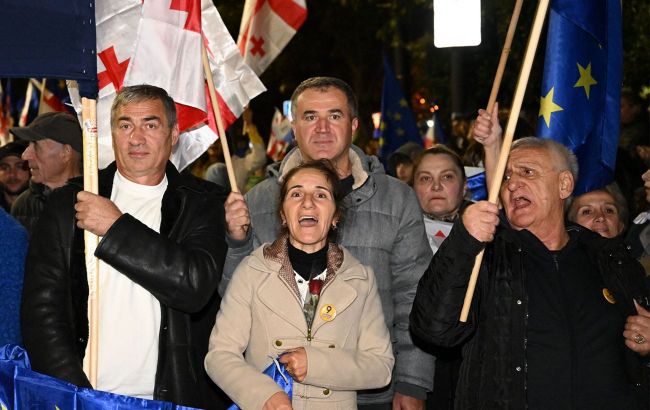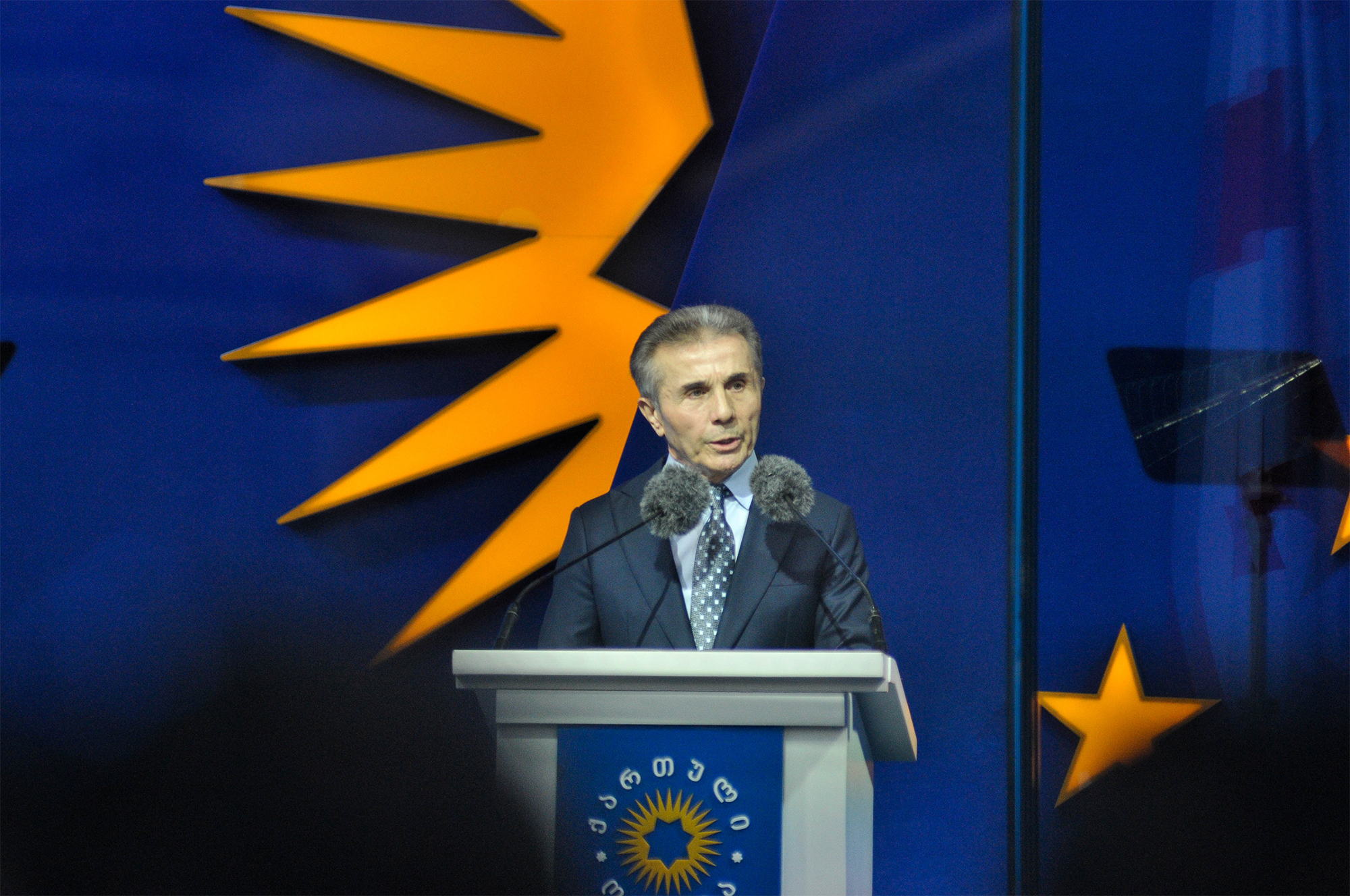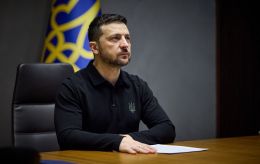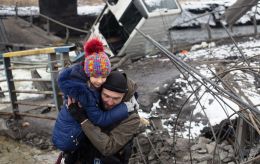Europe or Russia: What to expect from Georgia's parliamentary election and whether revolution possible
 Pro-European rally in Georgia (Photo: Getty Images)
Pro-European rally in Georgia (Photo: Getty Images)
Tomorrow, October 26, a parliamentary election will be held in Georgia, which will decide the country’s direction: toward the West or Russia. Here is the analysis of how the campaign is going, the ratings of the main parties, and whether mass protests will succeed after the election.
Contents
- More than just an election
- Government bets on fear
- What the opposition offers
- Revolution after the election
This parliamentary election in Georgia marks yet another significant milestone in the country’s history, important not only for Georgia itself but also for Ukraine. Even before Russia’s full-scale invasion in 2022, Ukraine, Moldova, and Georgia formed the Association Trio.
This cooperation format was meant to help the three countries move jointly toward the European Union. Ukraine's process has been relatively swift, considering the complexities of European bureaucracy. In Moldova, challenges persist, as the pro-European course barely passed in a referendum.
Georgia, however, has regressed. Since 2012, the ruling party, Georgian Dream, has tightened its grip and taken more steps toward Russia than Europe, while formally maintaining a European course. This includes trading with the aggressor country, refusing sanctions against Russia, and displaying openly anti-Ukrainian rhetoric from official Tbilisi.
Not everyone in the country is satisfied with this state of affairs. Georgia has seen regular pro-European protests, and many Georgians have even personally joined Ukraine in armed defense against Russian aggression. Despite this, the Georgian Dream has managed to stay in power and now aims to consolidate it in the upcoming election.
More than just an election
Both the government and the opposition have a lot at stake in this election. In mid-September, Bidzina Ivanishvili, the de facto leader of the Georgian Dream party and an oligarch with ties to Russia, stated that his party’s goal was to secure a constitutional majority. This would allow them to outlaw several opposition parties, including the United National Movement, founded by former President Mikheil Saakashvili.
According to Ivanishvili, the next step for the Georgian Dream is to apologize to the Kremlin for the 2008 war — an idea that might sound outrageous. Recall that Russia attacked Georgia in 2008 and occupied two of its regions: Abkhazia and South Ossetia.

Bidzina Ivanishvili at the rally (Photo: Getty Images)
The government claims that a constitutional majority is essential to restore territorial integrity through peaceful means. Opposition media in Georgia speculate that this might imply a confederative model — a union of several independent states — which would mean Georgia recognizing the independence of Abkhazia and South Ossetia. Currently, these regions are enshrined as autonomous regions in Georgia’s constitution.
Essentially, this model is the one the Kremlin unsuccessfully attempted to impose on Ukraine through the Minsk agreements. The key aspect of this model is that Russia, through its proxies in South Ossetia and Abkhazia, could obstruct Georgia’s path toward the EU and NATO.
The opposition's task in this election is to thwart this scenario and return Georgia to a European course.
Government bets on fear
According to a study by the British company SAVANTA, the Georgian Dream party has the support of 35% of the population, while four main pro-European opposition blocs combined can count on 52%. Among them, the Coalition for Change has 19%, the Unity (based on the United National Movement) has 16%, the Strong Georgia has 9%, and the Gakharia For Georgia has 8%.
Meanwhile, a GORBI poll, commissioned by the pro-government TV company Imedi, gives the Georgian Dream party 60.2%, just enough for a constitutional majority. The opposition views such polls as groundwork for potential large-scale falsifications.
However, the Georgian Dream does not plan to win the election solely through manipulation. Administrative resources and influence over public sector employees remain in play.
Additionally, the Georgian Dream and Ivanishvili, following a typical authoritarian approach, aim to unite their electorate against external and internal "enemies." In Georgia's case, they have fabricated a mythical "global war party." According to the Georgian government, these are forces in Western countries that want to drag Georgia into war and open a second front against Russia.
Georgian political analyst Gela Vasadze explains that this message suggests that as long as the Georgian Dream party is in power, Georgia will not go to war. But if they lose the election, the terrifying "global war party" will seize power, and there will inevitably be a war like in Ukraine.
"This is a very primitive but quite effective tactic because, of course, no voter believes that Georgia will attack Russia or that there is any 'global war party.' But everyone believes in something else — that Russia could attack Georgia, and the trauma of 2008 hasn't gone away," Vasadze noted.
He also mentioned that the Kremlin lacks the resources to attack Georgia, as all its resources are directed against Ukraine. However, the fear of war affects people with a vulnerable psyche and basic education.
An example of this strategy is a series of campaign posters ordered by the Georgian Dream, showing images of war-torn Ukrainian cities compared to peaceful life in Georgia. The slogans on the banners urge people to "say no to war" and "choose peace."
"A group of Russian political consultants, including those of Georgian origin advising the Georgian Dream, arrived and created this type of advertising. But it has had a backlash. Nobody is buying into it," said Doctor of Philosophy in Political Science and Foreign Policy Research Center expert Vakhtang Maisaia in a comment to RBC-Ukraine.
What the opposition offers
The opposition's strategy aims to engage as many pro-European citizens of Georgia as possible in the election. Throughout the campaign, large-scale rallies with tens of thousands of participants have been held across the country.
"I believe that a major mobilization of pro-European forces will take place on October 26, similar to what happened in Moldova, where the situation changed at the last moment. Many people who support European integration and a pro-European course will come out," said Maisaia.
However, the opposition has been unable to form a united front. According to Gela Vasadze, this raises the risk, under one possible scenario, that the authorities might pull one of the parties over to their side.

A sample campaign banner reads: "No to War!" on the left, "Choose Peace" on the right, and "41 Georgian Dreams" at the bottom.
Notably, Georgian President Salomé Zourabichvili has actively supported the opposition. Earlier this year, through her mediation, opposition parties signed the Georgian Charter.
This is a joint action plan for after the election, in which pro-European parties agree to form a temporary government, implement reforms, and return the country to a European path. A year later, the charter signatories are to step down to hold another parliamentary election, competing against each other. Zourabichvili already has a candidate for Prime Minister, who does not represent any of the opposition parties, but the name will be announced after the election.
The opposition also has plans to combat election fraud, focusing on observers. Fortunately, in today's world where everyone has a smartphone, this is easier than before.
"We have prepared 4,000 volunteers who will assist international and national observers in monitoring the election to prevent fraud," said Maisaia
Revolution after the election
For several years, the Georgian government has been systematically tightening the screws. The greatest controversy was sparked by the law On Transparency of Foreign Influence, adopted at the beginning of the year, which resembles Russia's law on foreign agents. This law triggered protests across Georgia, which eventually fizzled out. According to Maisaya, the law creates a legal basis for potential repression, should the need arise.
Repression could be imminent after the election, as it’s unlikely that they will conclude peacefully this time.
"I think there will be a severe political crisis in Georgia after the election, as there will be two sets of voting results. In one, the Georgian Dream will win, while exit polls from opposition media will show different data. Demonstrations will start, and the outcome will depend on how many people take to the streets and how the government responds," said Wojciech Wojtasiewicz, an analyst on South Caucasus issues at the Polish Institute of International Affairs, in an interview with RBC-Ukraine.
This moment will be a resilience test for the opposition. According to Wojtasiewicz, the Georgian government has learned how to handle protests.
"The Georgian Dream knows how to respond to these situations. They avoid the kind of violence the National Movement used but try to make people feel that protests won’t achieve the opposition’s goals," says Wojtasiewicz. "It’s hard to keep protesting for long. As we saw in spring, when Georgians protested the foreign agents law, large crowds filled the streets for a week or two. Then frustration sets in, and people eventually go home. Meanwhile, the Georgian Dream keeps doing whatever it wants."
Preventing another lull in protests is a distinct challenge for opposition forces. In similar situations in other countries, external support has played a significant role. For example, during Ukraine’s Orange Revolution and the Revolution of Dignity, foreign leaders' solidarity inspired people in the squares and created pressure on the authorities.
In Georgia’s case, signals from abroad are already emerging. The European Union is watching the situation with concern. On June 27, the EU Council suspended Georgia's EU accession process, and on October 21, thirteen EU member states stated that Georgia would not be able to join the EU unless it changed its political course. The European Parliament has also called for strict measures against Georgia in the event of election fraud.
Meanwhile, actions by the Georgian Dream and Ivanishvili suggest they are banking on Donald Trump's victory in the upcoming US elections. If this happens, it could lead to massive changes in the global political landscape, and Western leaders may turn their attention away from Georgia. Finally, informal support for the Georgian government from Russia should also not be overlooked.
Sources: sociological surveys, statements by Georgian and European politicians, and comments from Georgian political analysts Gela Vasadze and Vakhtang Maisaia, as well as Wojciech Wojtasiewicz, an analyst on South Caucasus issues at the Polish Institute of International Affairs.

